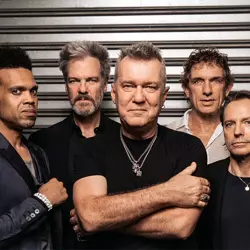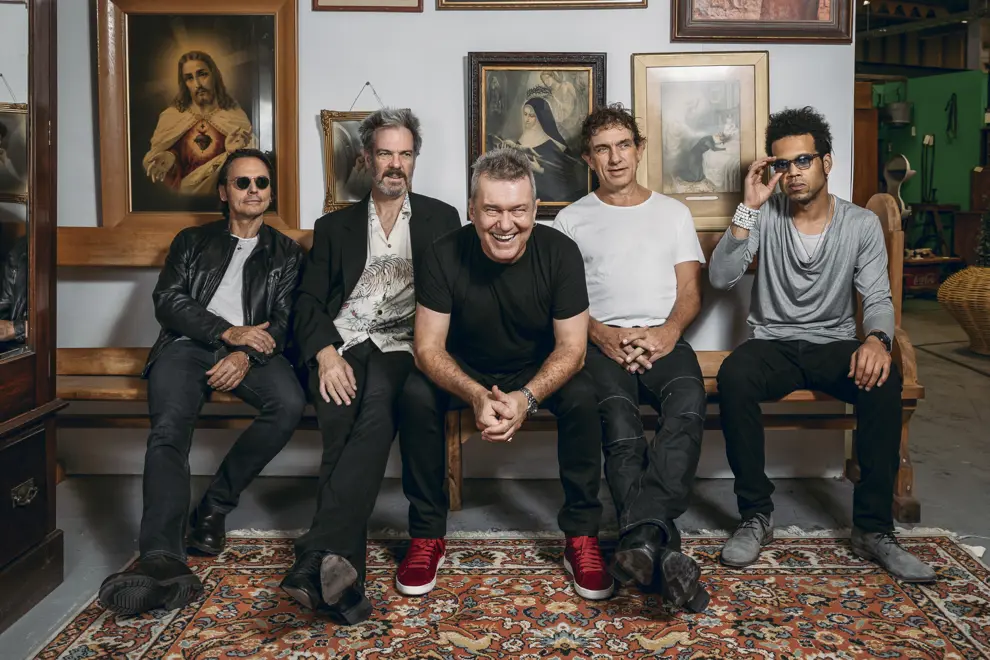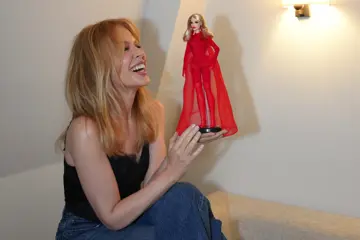 Cold Chisel
Cold ChiselWhen Cold Chisel refused to perform Khe Sanh on Countdown – and did they ever record a ‘clean’ version of the Australian national anthem?
Cold Chisel’s debut album dropped in April 1978, just months after the band were signed to WEA for just $700. And half of that advance was earmarked for the scruffy rockers to upgrade their wardrobe.
Initially, the plan was to be like Chisel’s heroes, Led Zeppelin, and have no singles. But when the album failed to connect with the public, WEA opted for Khe Sanh to be released as a single a month after the album was in stores.
In the new LiSTNR exclusive podcast, Cold Chisel, Jimmy Barnes remembers Don Walker giving him the lyrics to Khe Sanh for the first time.
“Don said here we're going to learn this song tonight, and then they gave me the lyrics, and it was like a novel.”
On June 10, 1978, Chisel headed to Melbourne, where the still relatively unknown band had managed to score a slot on the ABC music show Countdown.
Chisel were a little wary of Countdown due to bands having to mime their songs. However, band manager Rod Willis managed to convince Chisel it would be a good career move – at this point, the band were still broke, regularly crashing on friends’ couches, and having to play constant gigs to keep the money rolling in.
“Cold Chisel were deadly against going on Countdown,” Rod Willis said. “I mean, they recognised, of course, that it can break bands and is a very important factor in breaking bands. But I remember them sort of saying, you know, the people that follow them, those small number of people, they will be horrified as such, and I'm saying, well, it has its broad appeal out there in listener land.
Don't miss a beat with our FREE daily newsletter
“You know, it's the only way you're going to get out to those country areas. Those rural areas. We went to Melbourne, and everything was fine, and you know, Steve (Prestwich), the drummer, was not happy, and he was, grumble, grumble, grumble and all that kind of thing. And I'm just thinking, yeah, okay. If we do this, it'll work. I know it'll work.”
However, during a rehearsal of Khe Sanh, a Countdown producer notices the lyric ‘Their legs were often open, but their minds were always closed’.
This line would, in August 1978, see Khe Sanh given an ‘A’ Classification, which meant it wasn’t suitable for radio airplay.
But at this point, only Countdown had picked up on the offending line. And Rod Willis was charged with telling Chisel they’d have to change the line to be seen on TV screens.
“It was daggers; every member of the band looked at me,” Rod Willis says. “With a few expletives, I told you this wouldn't work, you know, blah, blah, blah, what are we going to do? And one of the guys said, well, can't they just beep out the lyric that's offensive as such? I said, well, you're not the Beatles, so they're not going to do that kind of thing. Anyway. In the end, I just said, I think probably you're right, guys; integrity is the most important thing with this band. Let's not do it.”
Rod told the Countdown producer the band wouldn’t change the line.
“He was fully expecting, I guess with a power of Countdown at that time, we'd be going ‘Yes, sir. Yes sir, three bags full’ kind of thing. You know? And we said, ‘Nah, sorry, we won't change things for Countdown’ and, and kind of walked out the door.
“I think the record company were caught between a rock and a hard place—whilst they wanted us to get on Countdown and did a lot of work to convince those in Countdown that put Chisel on, they were very disappointed, but I think a number of them within the company realised this is what this band's about. And in the end result, I think they believed that if they stood their ground, things would turn out for the best.”
However, Peter Walker, who produced Chisel’s self-titled debut, said a ‘clean’ version of Khe Sanh was recorded.
“We ended up recording alternate lines - their minds were always open or something like that. I'm pretty sure I did a mix with that lyric; we all listened to it and thought it sounded lame. I have a sneaking reflection that we mixed it, listened to it and maybe even erased it on the spot.
“It wouldn't be out of the question, and we just erased it. But there could be just a quarter-inch version of it somewhere. I wouldn't know; it was consigned to the dustbin of history, and there it's likely to stay.”
To hear the full Cold Chisel story, listen here.
















